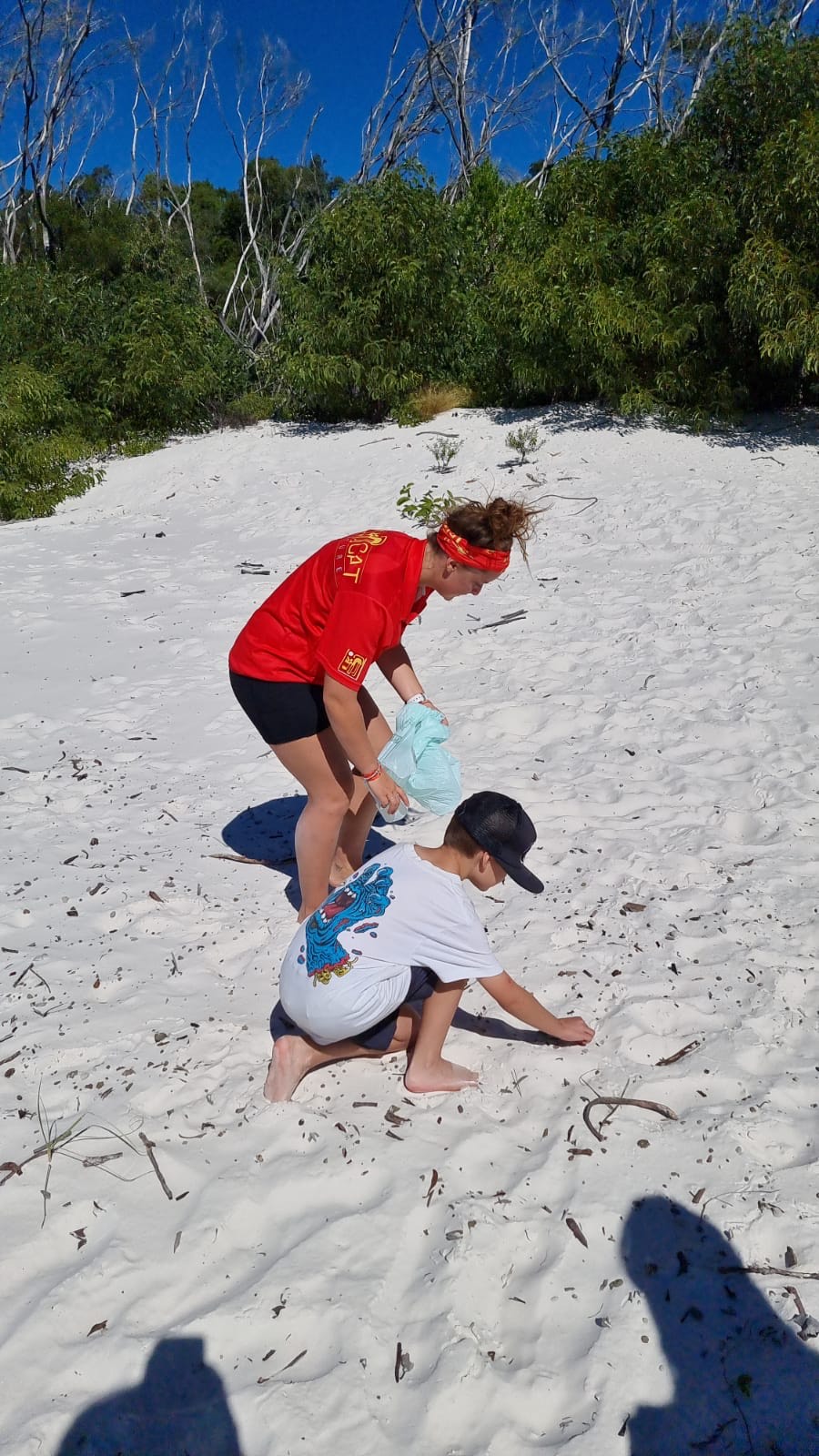


A young environmental crusader has been quietly contributing to the protection of our precious local ecosystems by spending her spare time cleaning up beaches and removing marine debris.
A project and a passion that started in her hometown of Warrnambool in Victoria has seen marine biologist, Emily Monacella, bring her skills to the Whitsundays where she continues her study of the type of marine debris that washes up on our shores.
Back in Warrnambool, Emily pioneered projects that created great change within her community.
Over the course of a year, she found 24,000 plastic cotton buds on a single beach in her hometown.
Distraught to see one small item cause so much impact on the environment, Emily lobbied for a change in legislation which led to the ban of single use plastic cotton buds thanks to her ‘Better Bud’ campaign.
Bringing this mindset and motivation to the Whitsundays, Emily has been on countless beach clean-ups since she moved to the area two years ago.
Thanks to her understanding partner, she is able to store the colourful array of discarded plastics in her garage and, instead of letting them return to landfill, she is creating art.
With broken bits of hard plastic, a glue gun and a wooden board she creates aesthetically pleasing designs.
Back in Warrnambool she crafted the pieces into signs that directed people to remote beaches.
Each time she completes a beach clean-up, Emily records and labels her collection and then uploads the results to the marine debris database provided by Tangaroa Blue.
She also traces their origin so she can see where the debris came from.
One of the most common items she finds are Aqua bottle caps which are a popular water bottle in Asia.
Emily is using information from the Whitsundays, studies she did in Warrnambool and also ger mother’s records from Weipa to create a map illustrating their prevalence across Australia.
“If you find any Aqua lids anywhere let me know,” she said.
“We are always looking for more data on where they’ve been found – you can send a message to me on Facebook if you like.”
“Even in the most beautiful regions in the world there is so much debris”
During the day Emily works as a Marine Biologist for Red Cat Adventures, a tour company that also has a passion for protecting the environment.
Thanks to funding from the Great Barrier Marine Park Authority, the company is able to conduct regular reef surveys that Emily conducts.
“When I lived in Thailand I became totally obsessed with coral,” said Emily.
“Then when we moved here and went for a tour with Red Cat it was just amazing!
“We met the team and the next minute I had a job!”
Since then, Emily has been involved with reef restoration projects, coral spawning studies and reef surveys.
Through Red Cat’s ReefSearch programs she heads out into the islands up to twice a week to conduct ‘Eye on the Reef’ studies.
In the coming months, she is hoping they will open the tour up to passengers who might like to contribute to the environment while enjoying a Whitsundays adventure.
“You can inspire people without meaning to inspire people”
Help make change today:
• Only use reusable plastic bottles and shopping bags
• Look at the ingredients in the cosmetics you are buying – chemicals wash down the drains and into the sea
• Always recycle items and read labels – you can purchase items that are made out of recycled plastic
Marine Biologist Emily Monacella conducts reef surveys for Red Cat Adventures
A skilled diver, much research takes place under water
Emily spends her spare time on beach clean-up duty
She collects discarded items and stores them in her garage
Marine debris is transformed into colourful pieces of art